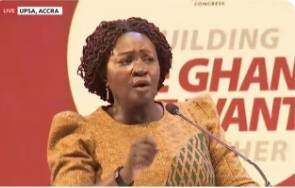When the Electronic Transaction Levy (E-Levy) was enacted, the Attorney-General and Minister of Justice, Godfred Dame, told the Supreme Court that "the quorum requirement as specified in Article 104(1) of the 1992 Constitution of Ghana was met."
The AG further said that when the measure was enacted into law, all minority members of Parliament were present in the Chamber of Parliament.
Three members of Parliament from the National Democratic Congress, led by minority leader Haruna Iddrisu, have launched a lawsuit in the Supreme Court questioning the legitimacy of the E-enactment. Levy's
In response to the action, the AG argued in a statement of case filed on May 30 before the Supreme Court that "there has been no infringement of Article 104(1) of the 1992 Constitution."
"All members of the minority who were reported as attending Parliamentary proceedings on that day were present in the Chamber of Parliament when the adoption of the policy of a new tax – the E-Levy – was undertaken," it stated.
The AG responded, "There is nothing before the Court showing the opposite."
The following is the AG's take on the facts:
By retelling the facts as set out in the Plaintiffs' Statement of Case, the Defendant is in no way admitting or confirming their veracity.
In essence, Defendant claims that Article 104(1) of Ghana's 1992 Constitution has not been violated. Defendant further denies that the proceedings leading to the adoption of the E-levy Bill on March 29, 2022, and the President of the Republic of Ghana's subsequent acts in assenting to it, were contaminated by illegality or unconstitutionality.
The Defendant claims that the quorum requirement set out in Article 104(1) of Ghana's 1992 Constitution was met when votes were taken at critical phases of the E-levy Bill's passage.
The official record of the 37th sitting of the First meeting of the Eighth Parliament (the "Votes and Proceedings") states that the E-levy Bill was brought through the different constitutionally mandated procedures in Article 106 of the Constitution and that, When the issue of whether to adopt the policy of the E-levy Bill was asked following the second reading of the Bill before it was voted into law, at least one-half of all lawfully elected members of Parliament were present in Parliament.
A copy of the Votes and Proceedings for Tuesday, March 29th, 2022 is attached to the affidavit in verification and labelled as Exhibit "AG1."
Respectfully, the defendant claims that the question of whether to approve the policy of the E-levy Bill (taken at the Bill's second reading) is the most crucial, as it determines whether the E-levy will become a statutory policy in Ghana or not.
If the bill is approved, E-Levy will become a new tax regime or policy for the state, and Parliament will be able to evaluate the precise terms in the new law.
All members of the minority who were registered as attending Parliamentary proceedings on that day were present in the Chamber of Parliament when the policy of a new tax – the E-Levy – was approved. Nothing in the record before the Court suggests otherwise.
Levy on Electronic Transfers The bill was introduced, and the motion was approved as a result.
 blogpay
blogpay





















